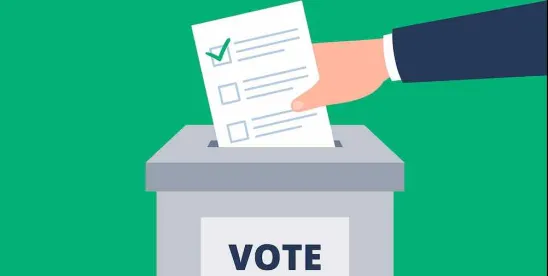As the nation concludes the 2024 elections, employers may want to keep an eye on the outcomes of several key state ballot measures that will have significant implications for wage policies, employee benefits, and compliance requirements.
The results of the 2024 elections are flowing in and President-elect Donald Trump is headed back to the Oval Office, winning a second term four years after failing in a reelection bid. In the U.S. Congress, Republicans appear to have seized control of the U.S. Senate, at least for the next two years, while several races that will decide control of the U.S. House of Representatives have yet to be determined.
Beyond the federal elections, several states considered ballot measures that may have a more immediate impact on employers. Here are some of the key results.
Approved
Alaska Ballot Measure 1: Minimum Wage Increase, Paid Sick Leave, and Ban Captive Audience Meetings
Voters in Alaska appear to have decisively approved Ballot Measure 1, the “Minimum Wage Increase and Paid Sick Leave Initiative,” passing with nearly 57 percent of the vote, according to unofficial election results as of November 6, 2024, showing 76 percent of the vote total reported. The measure will increase the state’s minimum wage to $15.00 per hour by July 1, 2027, provide employees the ability to accrue up to fifty-six (56) hours of paid sick leave per year at employers with fifteen or more employees and up to forty (40) hours at employers with under fifteen employees, and would prohibit captive audience meetings. The measure was passing on November 6, 2024, according to unofficial election results, but the result has not been called.
Massachusetts Question 3: Collective Bargaining for Rideshare Drivers
Massachusetts voters approved Question 3 with 54 percent voting in favor, according to media reports. The question asked voters to approve a state law that provides “Transportation Network Drivers” the right to form unions and collectively bargain for their wages, benefits, and other terms and conditions of work.
Missouri Proposition: Minimum Wage Increase and Paid Sick Leave
Missouri voters approved Proposition A, known as the “Minimum Wage and Earned Paid Sick Time Initiative,” with nearly 58 percent voting in favor, according to the unofficial results posted by the Missouri secretary of state. The measure will increase the minimum wage to $13.75 per hour by 2025 and increase it to $15.00 per hour by 2026. Additionally, the measure adopts a new law that will require employers with fifteen or more employees to allow employees to use up to fifty-six (56) hours of paid sick time per year and employers with fewer than fifteen employees to allow employees to use up to forty (40) hours of paid sick time per year. Employees will accrue one hour of paid sick time for every thirty (30) hours worked, beginning on May 1, 2025.
Nebraska Initiative 436: Paid Sick Leave
Nebraska voters overwhelmingly approved Initiative 436, the “Nebraska Healthy Families and Workplaces Act” (NHFWA), with nearly 75 percent of the vote, according to the state’s unofficial election results. The measure will require employers with at least twenty employees to provide up to seven (7) days, or fifty-six (56) hours, of earned paid sick leave per year and employers with fewer than twenty employees up to forty (40) hours per year. Under the measure, employees will start accruing paid sick time on October 1, 2025.
Rejected
Arizona Proposition 138: Tipped Workers Minimum Wage Amendment
Arizona voters decisively rejected Proposition 138 with 75 percent voting against it, according to the unofficial election results. The measure would have amended the Arizona Constitution to allow employers to pay tipped workers 25 percent below the state minimum wage if the employer could show that employees’ wages plus tips are at least $2.00 more than the minimum wage for every hour worked. Arizona’s current minimum wage law allows employers to pay tipped workers $3.00 per hour less than the $14.35 per hour minimum wage if the employees earn at least the minimum wage with tips combined.
California Proposition 32: Minimum Wage Increase
California voters have rejected Proposition 32 with 52 percent voting against it, according to the state’s unofficial election results. The measures would have immediately raised California’s minimum wage for employees with twenty-six or more employees to $17.00 per hour and to $18.00 per hour on January 1, 2024, and raised it for employers with twenty-five or fewer employees to $17.00 on January 1, 2025, and $18.00 per hour on January 1, 2026.
Massachusetts Question 5: Minimum Wage Increase for Tipped Workers
Question 5 would have approved the gradual increase in the minimum wage for tipped workers until it reached the state minimum wage in 2029. The law would have allowed employers that pay tipped employees at least the minimum wage to pool tips and distribute them to all the nonmanagement employees.







 />i
/>i

